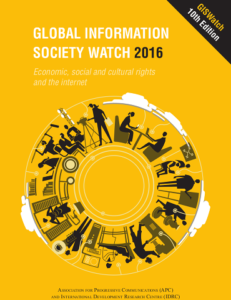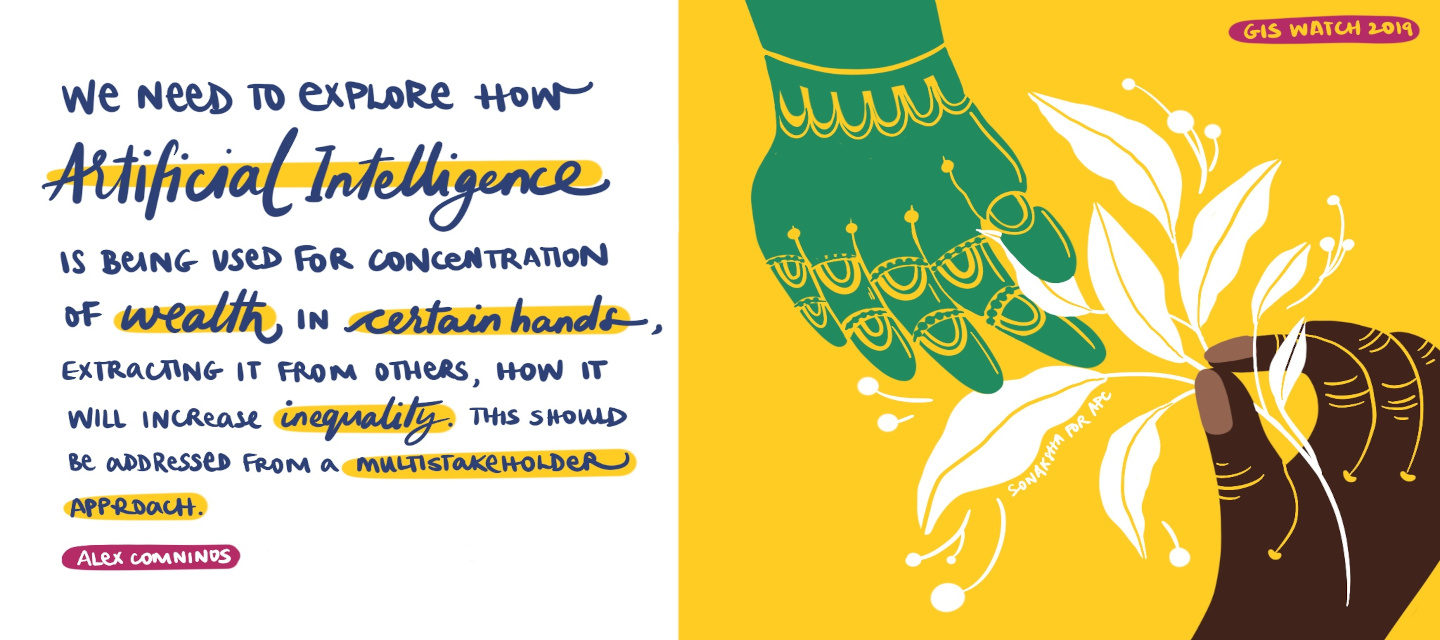
GISWatch 2016 – Economic, Social and Cultural rights (ESCRs) and the internet
The 47 country reports gathered in 2016 illustrate the link between the internet and economic, social and cultural rights (ESCRs). Some of the topics will be familiar to information and communications technology for development (ICT4D) activists: the right to health, education and culture; the socioeconomic empowerment of women using the internet; the inclusion of rural and indigenous communities in the information society; and the use of ICT to combat the marginalisation of local languages. Others deal with relatively new areas of exploration, such as using 3D printing technology to preserve cultural heritage, creating participatory community networks to capture an “inventory of things” that enables socioeconomic rights, crowdfunding to realise rights, or the negative impact of algorithms on calculating social benefits. Workers’ rights receive some attention, as does the use of the internet during natural disasters.
Ten thematic reports frame the country reports. These deal both with overarching concerns when it comes to ESCRs and the internet – such as institutional frameworks and policy considerations – as well as more specific issues that impact on our rights: the legal justification for online education resources, the plight of migrant domestic workers, the use of digital databases to protect traditional knowledge from biopiracy, digital archiving, and the impact of multilateral trade deals on the international human rights framework.
